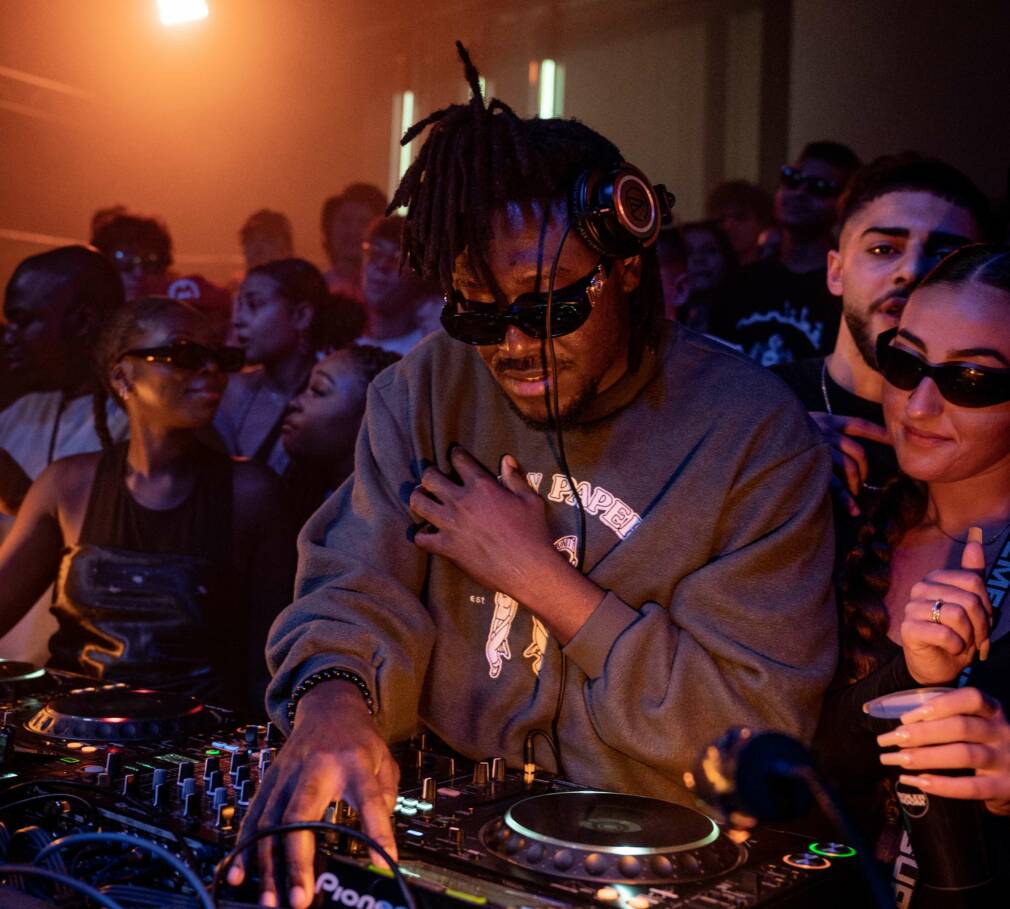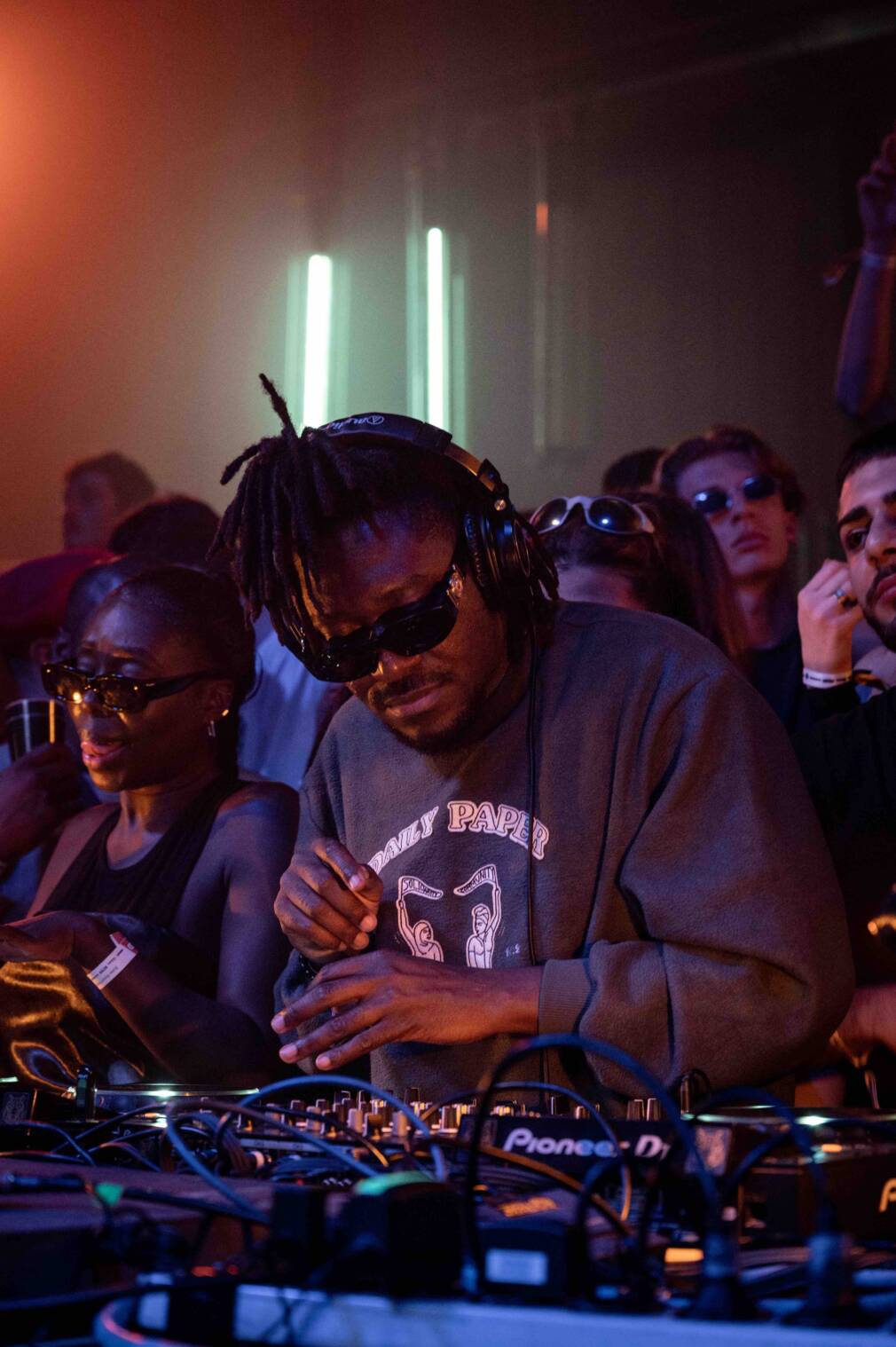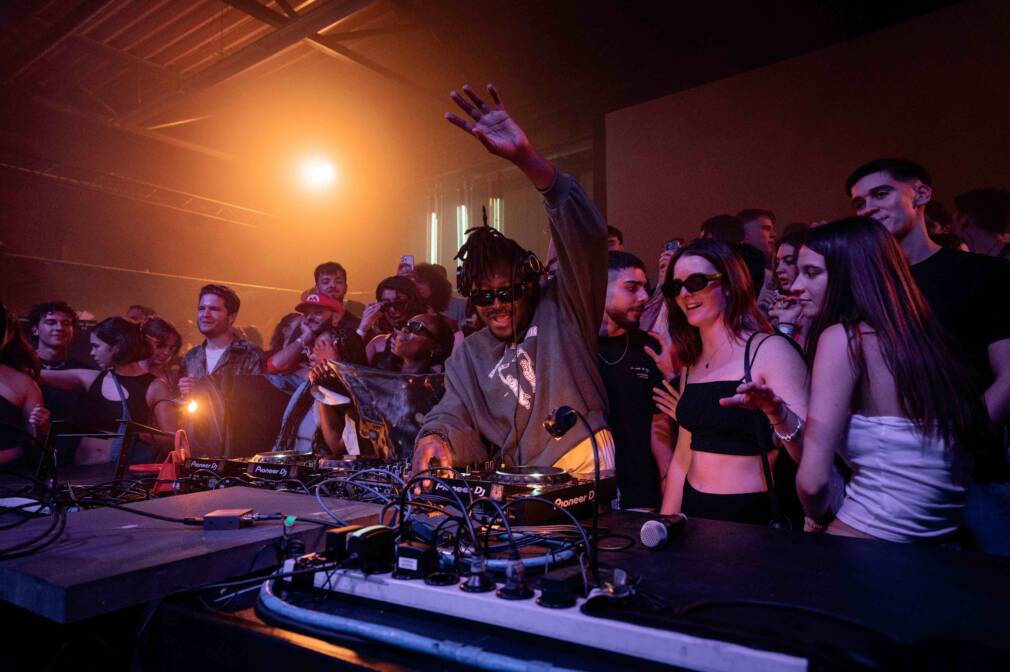GuiltyBeatz, born Ronald Banful, has been quietly bringing a kick to Ghanaian music since the young age of 17. Born in Palermo, Italy, GuiltyBeatz moved to Ghana at the age of 6 where he would develop his love for music. Originally working as a sound engineer GuiltyBeatz became a self-taught producer, sharing his talents with the big-heads that would come through the Star Production studio in Tema. Over the years GuiltyBeatz would end up rubbing shoulders with Sarkodie and R2Bees, Mr Eazi and Stonebwoy, getting him on the inside track in the Ghanaian music business. In 2009 he remembers hearing his first produced track on the radio “Tell Me Name”, but the major break came in 2018 with the song “Akwaaba” with Mr Eazi, Patapaa and Pappy Kojo which became a major hit earning several award nominations. Not long after, Queen B picked up the phone for work on The Lion King: The Gift soundtrack and there’s no looking back. Since GuiltyBeatz has branched out on his own, producing and hosting his own projects under the GuiltyBeatz name. In 2020 he released the EP Different with soulful Afro-house tracks including “Uthando” that best express what he’s been trying to achieve as a producer. “Feel good music that makes you dance,” as he puts it. Which explains his constant presence on stage as a DJ, noting the footsteps of Major Lazor or Black Coffee to create the full artistic package. Hot off the stage in Amsterdam for Boiler Room’s first festival edition and with an album in the works, we spoke with GuiltyBeatz to understand his path, sound and pick his brain on some advice for young producers with global dancefloor ambitions.
Can you talk about your experience moving to Accra from Palermo, Italy when you were 6?
The crazy thing is I have little memory of my childhood, but I do remember the change was a bit drastic. Italian is my first language. But even before I switched to English I had to learn the local dialect called Twi. So when I came down with my parents, my auntie couldn’t understand me cuz I was just only speaking Italian. It was kind of hard. But I think I got it after like a year.
And inside the home I read there was a lot of jazz music? George Benson and the like. Was there any Ghanaian stuff? Some highlife maybe?
Yeah, we played Daddy Lumba, we played the Okomfo Kwadee, people of that generation. There wasn’t so much highlife going on, but there was a lot of jazz music. But when it comes to the local stuff I listened to Lumba, Tic Tac, Obrafour…
Now your sound has a lot of kick in it, which is unique in the Ghanaian space. Where did that come from?
I used to tell my friends look, you don’t need to do like the songs that we are hearing. You can, but I think I felt like the best way for people to connect to my music was first through Afro house and house music. The chords of those genres and then African drums are the best combination for me to express myself musically. But it took a long while for me to properly stamp it.

And more recently that same soulful house energy, but from amapiano?
Yeah I like the soulful element of it, and the fact that I get to make people dance. When I discovered it I was like, nah, this music is the perfect thing. You don’t need to make any cheeky songs and you don’t need to do what other people are doing. You get to express yourself and then like at the same time people are dancing to your music. That’s when you know you’ve won.
What made you as a producer want to do your own project instead of just making beats for other people?
So there was a time in my life around 2017 where I was just going through a lot. A lot of artists I produced for them, and I didn’t hear back from them anymore. They don’t get to me in terms of royalties, payments.. Like I just produce for them to do their thing and then they just go. So I told myself, I’m just going to make music for myself. I’m going to get artists to feature on my music instead of me always producing for them. So it came from a place of pain where I’d always been taken advantage of.
What’s it been like as an artist-producer?
It’s a good thing. I have much more creative control. I can change the end of the beat… Do it however I want. I also get to express myself as a producer on a project. Artists, when they’re making music it’s just like, song one, song two, song three. But for me, I synced all the songs together, so I get to be creative.
There’s been a lot of talk about your work with Tems, Beyoncé or Mr Eazi, but I wanna ask about “Dem Blues” by Shaybo and the Kojo Antwi sample.
It is crazy, I was just having a conversation with my girlfriend at that time and I was telling her I’m looking for Ghanaian songs that have jazzy feels that I want a sample. She was like, go listen to Kojo, he does a lot of that. So I went through all his music and I think one of the last songs on one of his albums, I listened to that and I was like, wow, this is perfect.
Do you sample any other old-school Ghanaian acts?
People are gonna hear that a lot on my next project. Old school samples properly fused into Afro-house.
Is Accra ready for an Afro-house movement with Afrobeats, hip-hop and amapiano taking up so much space?
Recently, I think earlier this year, there was a house party and people there were listening to proper house music. I was thinking, “hmm, this is very interesting.” And there’s also these parties that are coming up, day parties. They play electronic type music, so there might be something building. I feel like if this thing keeps going, by next year, Afro-house, house music is gonna be a thing in Ghana. There’s producers and artists that want to do that type of music, but they’re scared because they don’t know if it’s gonna catch on. But through those parties, people are going to gain confidence.
What’s your advice for other producers out there who are trying to get a foothold in the whole thing?
I think new producers should put themselves out there. It’s literally one decision that could just change your life. For me, I just happened to work with one guy. He had a studio where like most of the artists in Ghana were coming through called Star Productions in Tema. A lot of artists were coming through the studio and I wasn’t even producing for them, I was engineering. But then after I would just play a couple of songs like, “listen to this. What do you think?” And that’s how they just like recommending me to other people.





